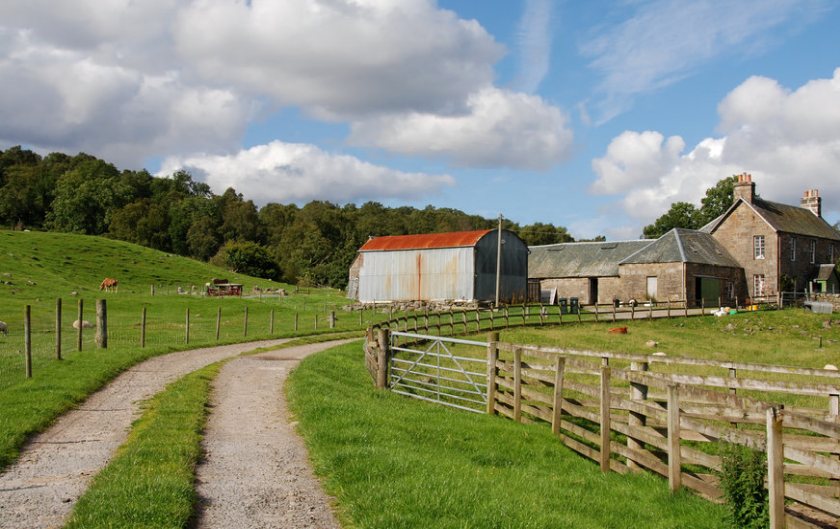
Regulating houses let as part of agricultural holdings through private rented sector legislation instead could lead to 'intractable problems' for farming businesses, Scottish Land & Estates has warned.
The Scottish government has signalled its intention to bring homes within agricultural tenancies into greater line with the regulation and operation of the private rented sector.
SLE, a rural business organisation, said that while it supported the need for the quality of homes to be improved, bespoke rural solutions were required rather than a one-size fits all approach more suited to urban settings.
The group said regulation should be incorporated into an Agricultural Holdings Bill rather than an 'ill-advised attempt' to bring the sector into a future Housing Bill.
Sarah-Jane Laing, chief executive of SLE said: “We support the broad effort to improve the standard of housing stock on tenanted farms where required, ensuring homes are safe and warm for all.
“One of the current considerations by government is to look at housing let through agricultural holdings and how that could be brought closer into line with private rented sector legislation.
"We firmly believe that any changes to legislation should only occur through bespoke legislation, taking account of the complexity of agricultural holdings legislation rather than trying to retrospectively apply housing legislation.
"That would be done through an Agricultural Holdings Bill but taking cognisance of wider housing policy principles. We would reach the same outcome but through a route that was better suited to tenant farming."
Issues such as repairing obligations, rent, tenants’ improvements and farmhouses forming part of the fixed equipment must all be considered, Ms Laing said.
To override the current arrangements without careful consideration could present 'real difficulties' for all within the industry, she added.
“We all share the goal of trying to increase rural housing but all too often it is thwarted by delays in planning processes, lack of funding for private affordable homes, prohibitive infrastructure and an ever-growing burden of private rented sector legislation."
Members of SLE provide more than 10,000 homes for rent in rural areas and many businesses are actively involved in building homes.
And while many farming and rural businesses are dedicated to meeting a real social need, Ms Laing said they were frustrated with current policy.
"Delivery of new homes is more complicated than it need be, and we continue to lose affordable rented housing due to ever increasing burden on landlords," she said.
"The rate of new build affordable rented houses just cannot match the homes we are losing from the sector week on week.
“The time for action is now and we need to see the Scottish government deliver on its commitment to provide rural solutions to rural housing need.”
